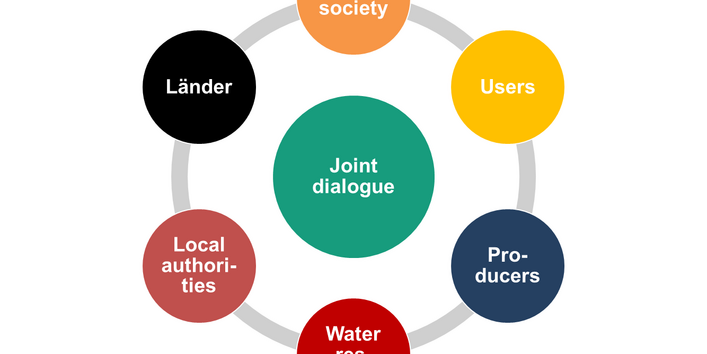From the Stakeholder Dialogue on Micropollutants to the “German Centre for Micropollutants”
In 2016, the BMU launched a stakeholder dialogue to develop a strategy at the federal level for dealing with “micropollutants” in water bodies. Ever since, the German Environment Agency has been providing technical support for this dialogue process together with Fraunhofer ISI and IKU GmbH as its project partners. The goal is to prevent or reduce the input of micropollutants into the aquatic environment. This requires a combination of source-oriented, application-oriented and downstream measures with sufficient effectiveness and the highest possible efficiency. Such a list of measures forms the basis of the federal government’s Trace Substance Strategy.
In a first phase lasting until June 2017, the stakeholders drew up initial recommendations in a policy paper. These were fleshed out in the 2nd phase by March 2019. Four working groups developed the following under the Stakeholder Dialogue:
- A procedure for determination relevant micropollutants
- Mitigation strategies at source implementing producer responsibility
- Mitigation strategies on the user side: Communication, education and application-related measures
- Mitigation strategies based on end-of-pipe measures such as the orientation framework for advanced wastewater treatment at wastewater treatment plants.
